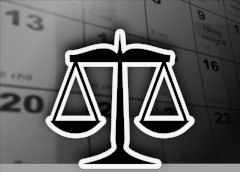Alleged members of Khmer People’s Power Movement (KPPM) sentenced
Published on 14 January 2015This morning, three alleged members of the Khmer People’s Power Movement (KPPM), Serei Bunlong, Seng Sokmeng and Um Phirun, were convicted of offenses stemming from their activities shortly before the July 2013 National Election. Bunlong and Sokmeng were sentenced to six years in prison and fined $1,250 while Phirun was sentenced to 5 years in prison and received the same fine. All three have had their right to vote rescinded indefinitely.
The three were arrested and detained in Banteay Meanchey Province a month before the July 2013 National Election, following the distribution of watches, radios, DVDs, and t-shirts bearing the KPPM logo and calling for people not to vote in unfair elections. They have been convicted under Criminal Law Article 453 that criminalizes plotting an attack liable to endanger the institutions of the Kingdom of Cambodia or violate the integrity of the national territory, and Law on Election of Members of the National Assembly’s Article 124 that criminalizes the use of force or violence to deter eligible voters from voting.
The KPPM is led by Sourn Serey Ratha, who was also convicted today in absentia. Serey Ratha is a controversial figure in Cambodia who has been labeled a terrorist by the government. This accusation has been used to groundlessly arrest and convict - without evidence and often on the basis of demonstrably false comments made by Ratha - critics of the government, such as radio owner Mam Sonando.






